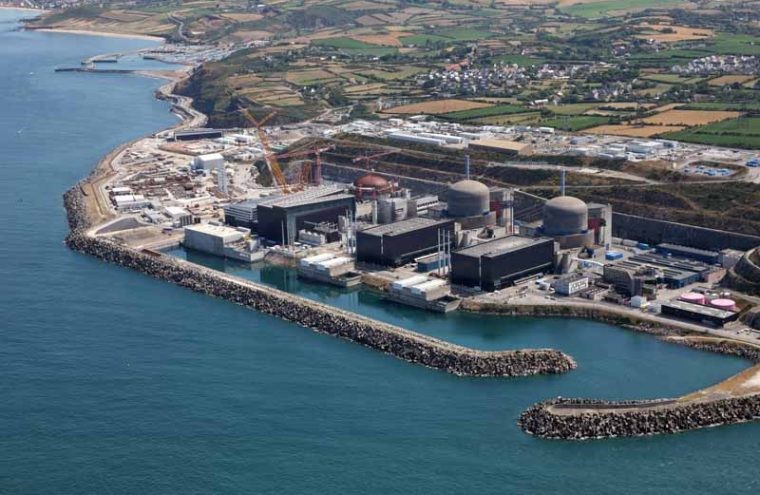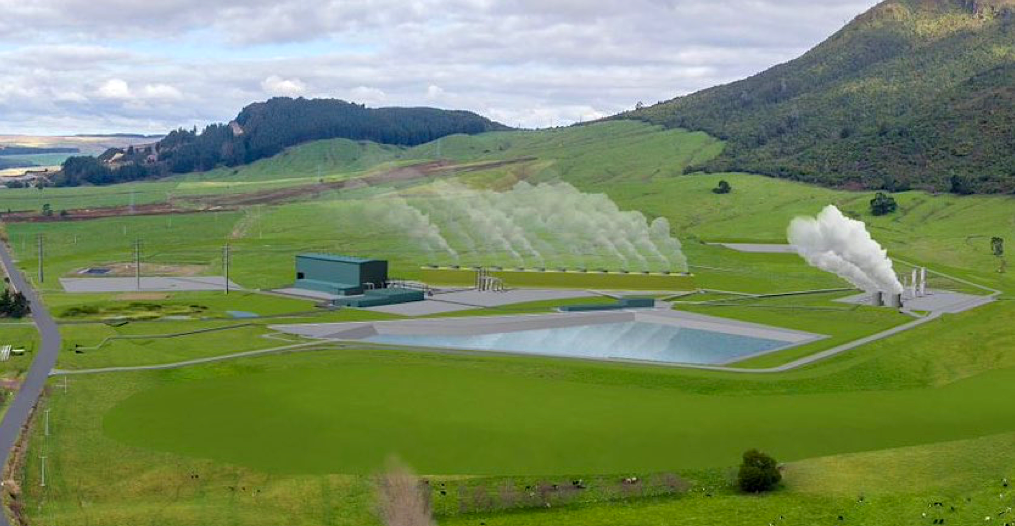On a clear day, from my apartment on the island, I could make out the shape and structures of the Flamanville Nuclear Power Plant.
Across the water, it loomed on the edge of the Cherbourg Peninsula in Normandy, France.

Flamanville Nuclear Plant. Source: Normandy Tourism
During my time living there, the plant was awaiting the introduction of its third reactor. The project that began in 2007 was meant to start producing power in 2012. But it had been beset by safety concerns, ran five times overbudget, and is not expected to be ready for commercial introduction until 2022.
I recall reports on the island that the local government had secured enough iodine tablets for the population in the event of any accident.
Meanwhile, we enjoyed our electricity through the harsh northern winters, care of an undersea cable. Most of that power (about 95%) came from France’s EDF network — the company that owns Flamanville.
By the time France was threatening to cut power over a post-Brexit fishing row, we had mercifully left the island.
Electricite de France [EPA:EDF] is a nuclear generation company and has often been cited as the world’s largest producer of electricity. In 2019, it had revenue of over €71 billion.
It is listed on the Paris Stock Exchange, although around 82% of the stock is owned by the French government.
During my years, indirectly connected to EDF, I noticed a couple of things. Power seemed expensive, even though nuclear generation is supposedly cheap to supply. We were never without power, not for a minute. Though underground lines helped to ensure that.
Of course, while nuclear may be economical to operate, the cost lies in the development of the plants. And the massive budget overruns at Flamanville’s third reactor show that.
Here in New Zealand, thousands of homes were without electricity
This happened on August 9, 2021.
It was the coldest night I can remember for a long time.
I was driving home, past the golf course, and noticed the area in darkness.
I switched onto talkback radio to listen to Marcus. Sure enough, people from around the country were calling in with no electricity.
It appeared that Transpower, the manager of the nationwide network, didn’t have enough electricity to go around. At around 5pm, it issued an emergency warning, asking generators to make more power available.
Unfortunately, this didn’t leave enough time for Genesis to activate their third coal-fired turbine at the Huntly power station.
The wider picture is one of a lack of infrastructure investment in this country. And underinvestment in new generation that goes back decades.
Genesis Energy [NZX:GNE] has experienced a rising share price since this debacle. It also pays a dividend — currently around 5% p.a.
Perhaps investors realise the dependency consumers have on this business. And, potentially, its ability to maintain reasonable margins.
Do power companies make good investments?
If you ask New Zealanders who participated in the part IPO of the government-owned generators some years back, they will likely say, ‘Yes, indeed.’
Genesis itself has gone from a share price of around $1.80 in 2014, to around $2.90 today. If you factor in the generous annual dividends, it may have done as well, if not better, than many investments in the buoyant property market.
Yet the experience overseas is more mixed.
EDF has had a stagnant share price for some years and dividends of only around 3.5%.
AGL Energy [ASX:AGL] in Australia, while paying very high dividends, has suffered on the share price front as climate-focused investors move against it. The decline in wholesale prices in Australia has not helped either. Though, in the opinion of some analysts, the stock presents remarkable value.
One company I do like in the space is Contact Energy [NZX:CEN].
It is a mostly renewables-focused company and posts some of the stronger margins in the sector.
Back in February 2021, they issued a share-purchase plan to raise $400 million toward a new geothermal generation project at Tauhara. The price was around $7 per share, with a projected dividend yield of 5%.

Concept design, Tauhara geothermal power plant. Source: Contact Energy
In my February 2021 article on Contact Energy, I outlined why I would be taking up an allocation. But did also mention the stock was still quite expensive on a P/E analysis.
Investing in power companies requires you to do your homework and understand all the risks. Since they are utilities, your analysis also needs to consider how much of the return will be generated from dividends.
Growth can actually be much choppier than you may think. Power companies are not always the ideal defensive investment.
When it comes to climate concerns and the volatile nature of wholesale power prices, certain companies can quickly fall out of favour with the market, as EDF and AGL demonstrate.
Perhaps a more defensive choice is to look at the electricity infrastructure itself?
You could consider lines companies like Vector [NZX:VCT] that distribute power — or their equivalents overseas. But these businesses also present risk in the form of ongoing regulatory oversight.
All investments in companies carry risk. And power companies may not always be the certain, defensive bet you believe them to be. The way we consume and generate power is changing fast. And climate change views will be a big part of that.
Yet energy is vital to modern life. As the population grows, its demand increases. And it’s not easy or cheap to generate. For now, I’m more than happy to continue investing in keeping the lights on.
Regards,
Simon Angelo
Editor, Wealth Morning
Important disclosures
(This article is commentary and the author’s personal opinion only. It is general in nature and should not be construed as any financial or investment advice. To obtain guidance for your specific situation, please consult a licensed Financial Advice Provider.)
Simon Angelo owns shares in Contact Energy [NZX:CEN], Genesis Energy [NZX:GNE], Vector [NZX:VCT], and AGL Energy [ASX:AGL] via Wealth Manager Vistafolio.





Simon is the Chief Executive Officer and Publisher at Wealth Morning. He has been investing in the markets since he was 17. He recently spent a couple of years working in the hedge-fund industry in Europe. Before this, he owned an award-winning professional-services business and online-learning company in Auckland for 20 years. He has completed the Certificate in Discretionary Investment Management from the Personal Finance Society (UK), has written a bestselling book, and manages global share portfolios.